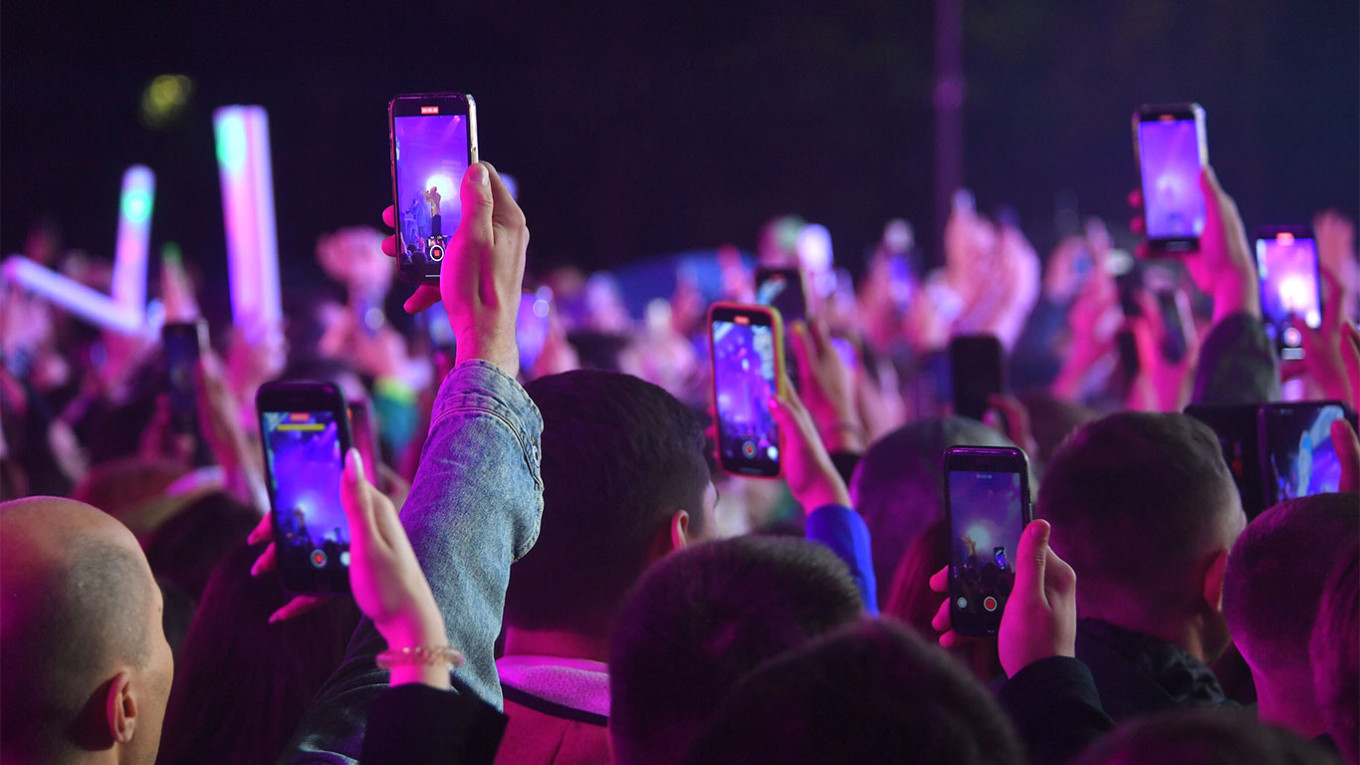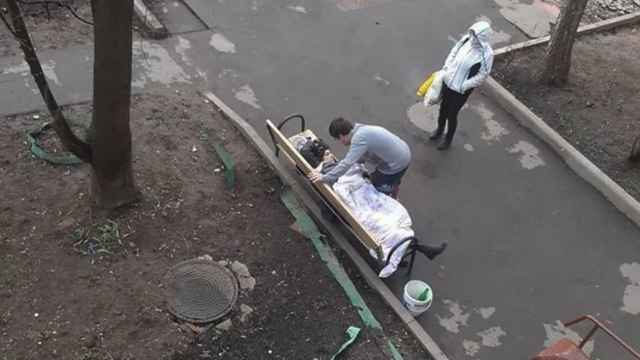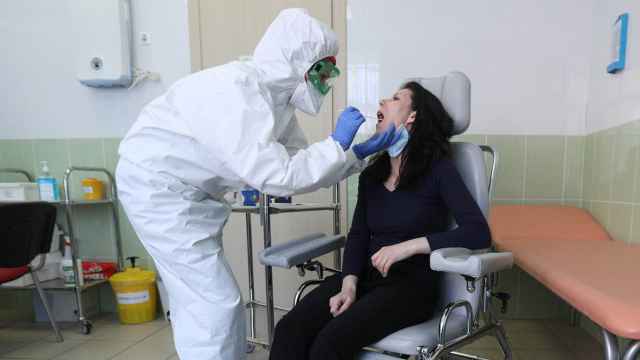MOSCOW — Loud music, people dancing and faces covered with glitter — today, parties in Russia’s capital look like parties anywhere.
“As long as there is an opportunity to enjoy life, then you need to do it,” Daria, a Russian in her 20s, told The Moscow Times at a techno music festival in the Moscow region.
Amid the ongoing war with Ukraine, sporadic drone attacks and intensifying pressure on dissident voices inside the country, many Russians have taken solace in the parties and festivals that continue to unfold across the country.
“Everyone is having fun and dressing up as it used to be [before the war],” Daria said. “If the situation deteriorates significantly, we will still have time to face it. For now, we can engage in escapism and hang out.”
Walking the streets of Moscow, there are hardly any signs of the country’s devastating offensive, which has killed tens of thousands and displaced millions.
Billboards promoting enlistment in the Russian military and portraying Russian soldiers as war heroes as well as foreign shops and international companies shuttered by Western sanctions are the only visual reminders of the ongoing conflict.
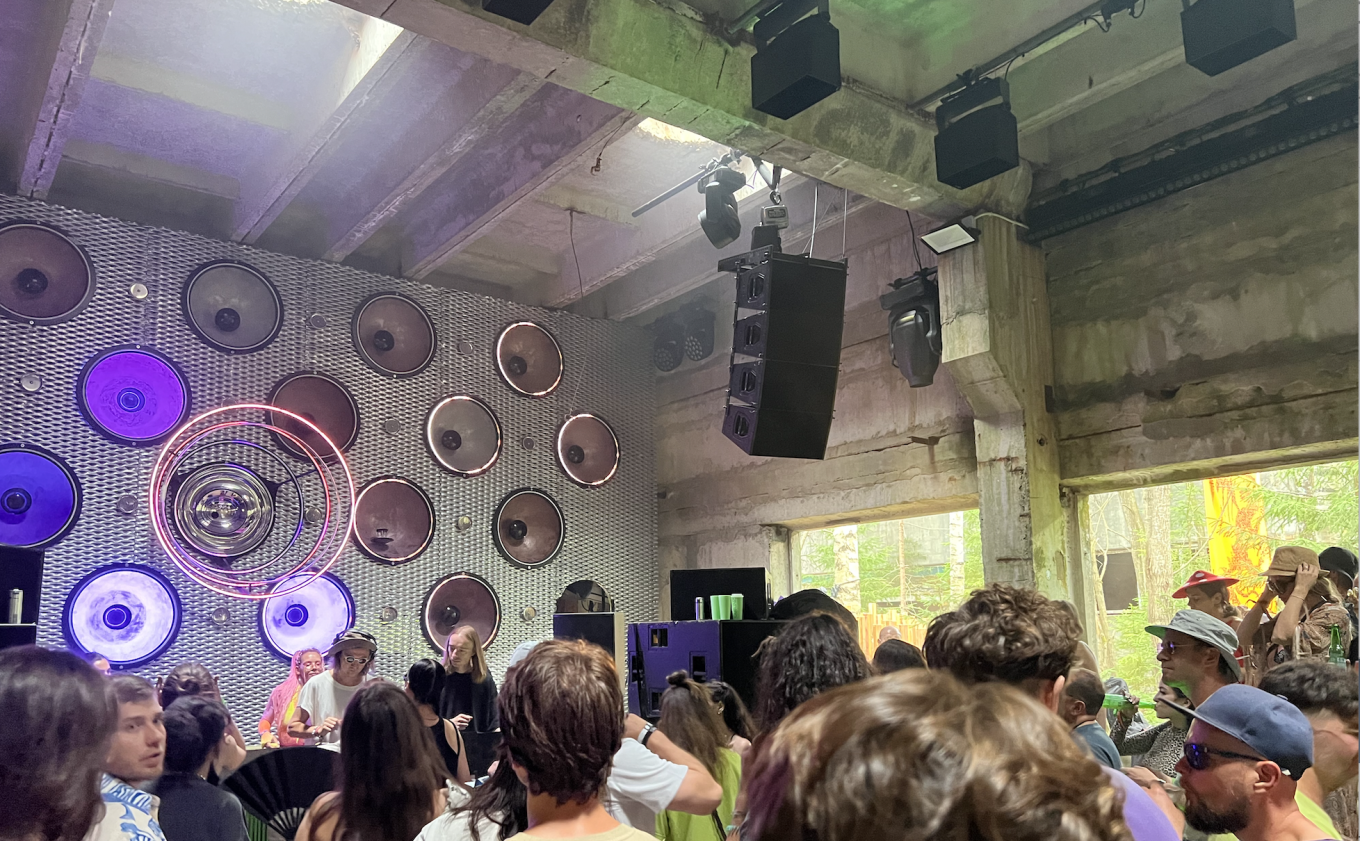
Experts said “the authorities have heavily invested in maintaining peace and calm” by paying benefits to Russian soldiers and their families.
Major Russian cities like Moscow and St. Petersburg also appeared to be less affected by the military recruitment campaign than remote, less-affluent regions, where people seemed more eager to sign military contracts.
Occasional drone attacks on Russia’s capital raised concerns among some Muscovites, but it appears that it didn’t stop them from attending parties.
Anna, a Russian in her 20s, admitted that despite her safety concerns, she chose to go to a popular techno festival in August because she didn’t want to “miss the opportunity to see friends.”
“If you don’t read the news, it feels like there’s another world and another life — and there you don't think about [the war],” Anna said, describing the event.
Many bars in Moscow were packed this summer, as observed by a Moscow Times reporter. Techno festivals like last week’s Sigma festival in Moscow as well as big festivals like Outline and Signal just a few hours’ drive from the Russian capital had crowds in the thousands. Moscow’s film festivals are also popular social fixtures.
The war has long since faded into the background for a significant portion of the country, with the exception of those who were directly conscripted to fight, said Denis Volkov, head of the independent Levada Center polling agency.
“Life goes on as usual. In Moscow, one can find people dining, relaxing, restaurants and theaters packed,” Volkov told The Moscow Times.
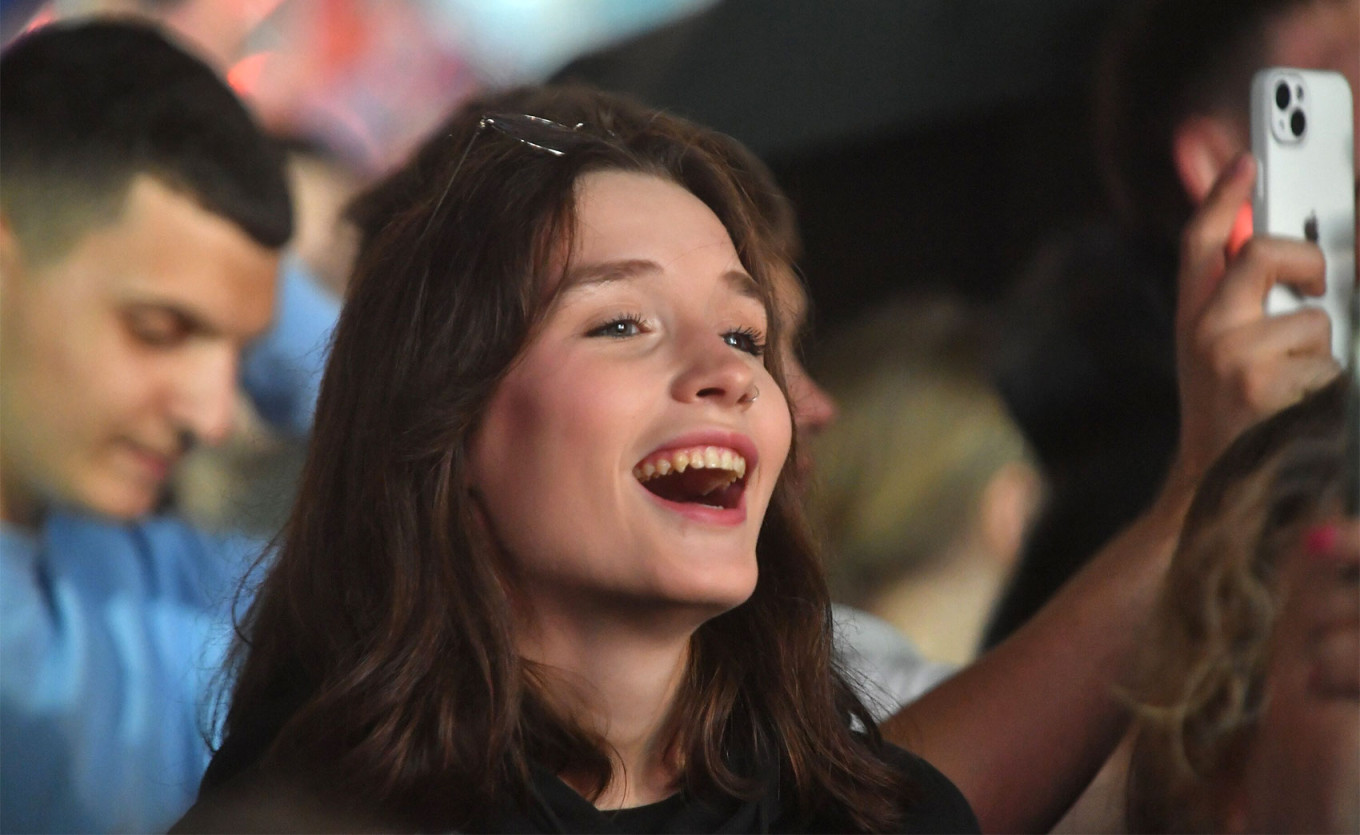
Around 40 nightclub events take place in the capital every weekend, said the organizer of an online Moscow techno community with thousands of subscribers who requested anonymity to speak about the effects of the war on his livelihood.
Although there has been a decrease in the number of nighttime events, with parties now roughly one and a half to two times less frequent than before the conflict, the nightlife scene seems to be growing.
“There was definitely a decline in the number of events” after February 2022, the organizer told The Moscow Times at a cafe in central Moscow. “Many of our artists have left and many international artists boycotted Russia.”
The Kremlin’s war against Ukraine and its fall 2022 "partial" mobilization led to the emigration of hundreds of thousands of people, many of whom opposed the war — but in the months since these events, people have started to return to their homes and pre-war lives.
“We are now seeing that the number of events is growing as many people are returning to Russia,” the organizer said, adding that the absence of foreign musicians has also "created new opportunities for Russian artists, despite the unfortunate circumstances."
This sentiment was echoed by partygoers.
"Party life has changed in the sense that clubs have stopped inviting certain foreign artists, but this offers a great opportunity for our talented guys to express themselves,” Daria said.
Volkov from the Levada Center said that by disregarding the war, people are attempting to cope with the stress it brings and trying to push their feelings of shock into the background.
"This is a defense mechanism,” Volkov told The Moscow Times. “People said that it was too painful to watch the news and if you watch it all the time, you'll just go crazy.”
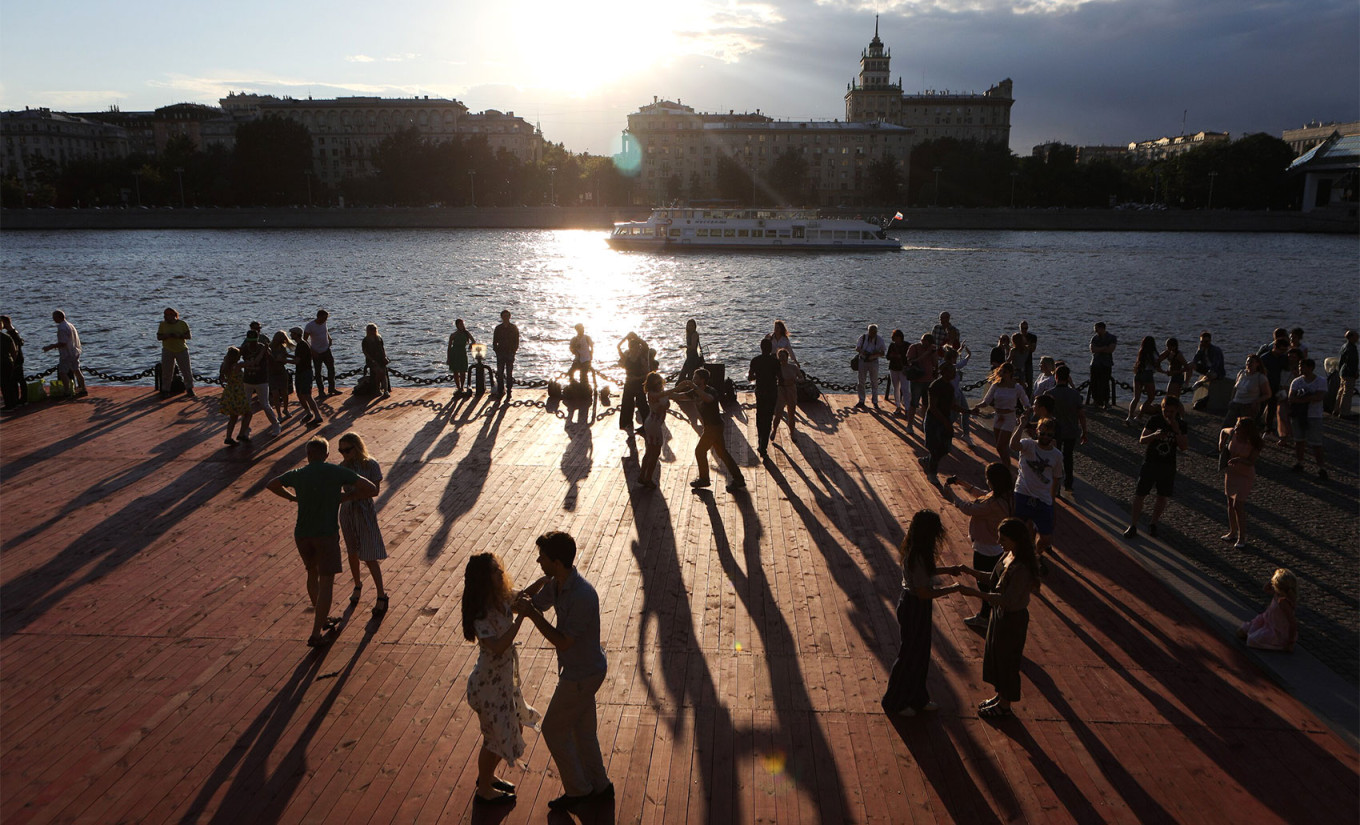
Approximately 62% of respondents to a Levada Center survey indicated that the country was generally headed in the right direction, and 80% expressed their approval of President Vladimir Putin's performance.
Yet, “on a subconscious level, it's evident that this [war] hasn't disappeared, and people are still losing their lives,” Volkov said.
At the techno festival, some shared a similar view.
"If you start thinking about it, then, of course, you feel guilty. Why the hell are we hanging out here while people are dying? There's a war, and we're not doing anything," Anna said.
"But what should we do? How can we help? Stay at home and not go to parties? It's unlikely that that can help anyone."
A Message from The Moscow Times:
Dear readers,
We are facing unprecedented challenges. Russia's Prosecutor General's Office has designated The Moscow Times as an "undesirable" organization, criminalizing our work and putting our staff at risk of prosecution. This follows our earlier unjust labeling as a "foreign agent."
These actions are direct attempts to silence independent journalism in Russia. The authorities claim our work "discredits the decisions of the Russian leadership." We see things differently: we strive to provide accurate, unbiased reporting on Russia.
We, the journalists of The Moscow Times, refuse to be silenced. But to continue our work, we need your help.
Your support, no matter how small, makes a world of difference. If you can, please support us monthly starting from just $2. It's quick to set up, and every contribution makes a significant impact.
By supporting The Moscow Times, you're defending open, independent journalism in the face of repression. Thank you for standing with us.
Remind me later.



